
THE VOICE OF INTERNATIONAL LITHUANIA
|
VilNews has its own Google archive! Type a word in the above search box to find any article.
You can also follow us on Facebook. We have two different pages. Click to open and join.
|
Archive for May, 2012

The new generations are leaving the country in droves and very few from the country's diaspora groups plan to come home to contribute to the reconstruction of this once fine and proud country.
Our series of articles through April and May has revealed enormous discrepancies between Lithuania's current leadership and the large group of Lithuanians living outside their homeland.
It is assumed that the country's best educated and economically active segment of the population now lives in Western Europe, the USA and sometimes other countries, but that today's leaders do not do much to reach out to them, start the kind of communication that is necessary to get this country on its feet again.
Obviously, this is tragic. All Lithuanians love their homeland, but feel that the government and the leadership generally do little to facilitate for the country to grow healthy and successful.
Meanwhile, the young, non corrupt professionals are very reluctant to assume political office. "We do not want to stick your hand into this overgrown wasp's nest," we have heard several say. The result is that the new generations are leaving the country in droves and that very few from the country's diaspora groups plan to come home to contribute to the reconstruction of this once fine and proud country.
We proposed a few days ago that Lithuanians outside their home country should start coming back home to contribute to new growth and better living conditions here. These are some of the responses we have recorded.
----------------------------------------------------------------------------------------------------------------------

Viktorija Ruškulienė
Once only corrupt government and retired elderly are left, Lithuania's economy will reach the very bottom and push itself up
Once only corrupt government and retired elderly are left, Lithuania's economy will reach the very bottom and push itself up: things will start to change, hopefully for the better. As there will be no one to be robbed, the ex-KGB-today-"democratically"-elected-mob-government will follow the path of their foreign invested funds and retire outside of Lithuania. Hopefully there still will be some Lithuanians willing to return back to their homeland...
Some more realistic politicians suggest to open Lithuanian job market for Belarus young professionals and political refugees, with a promise of European citizenship after 7 years working and paying taxes in Lithuania. This will become some "injection" to keep economy floating at the level it is today, but what will happen if Belarus elects new government and joins EU? Will people from Asia's developing countries be interested in cold climate and hopeless economy refuge?
Lithuania loves money, sent by expatriates, though...
----------------------------------------------------------------------------------------------------------------------
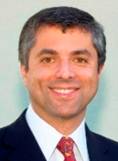
Grant Gochin
Lithuania does NOT love the expatriate community. If the country of Lithuania rejects us, why maintain our Lithuanian identity?
Lithuania does NOT love the expatriate community. Rather, LT does EVERYTHING possible to reject them. Loyalty has to work both ways. The days of the state being a slave-master and the citizens being mindless obedient drones are over.
If the country of Lithuania rejects us, why maintain our Lithuanian identity?
The people have to protest. If nobody does, nothing will improve.
- Bookmark :
- Digg
- del.icio.us
- Stumbleupon
- Redit it

The new generations are leaving the country in droves and very few from the country's diaspora groups plan to come home to contribute to the reconstruction of this once fine and proud country.
Our series of articles through April and May has revealed enormous discrepancies between Lithuania's current leadership and the large group of Lithuanians living outside their homeland.
It is assumed that the country's best educated and economically active segment of the population now lives in Western Europe, the USA and sometimes other countries, but that today's leaders do not do much to reach out to them, start the kind of communication that is necessary to get this country on its feet again.
Obviously, this is tragic. All Lithuanians love their homeland, but feel that the government and the leadership generally do little to facilitate for the country to grow healthy and successful.
Meanwhile, the young, non corrupt professionals are very reluctant to assume political office. "We do not want to stick your hand into this overgrown wasp's nest," we have heard several say. The result is that the new generations are leaving the country in droves and that very few from the country's diaspora groups plan to come home to contribute to the reconstruction of this once fine and proud country.
We proposed a few days ago that Lithuanians outside their home country should start coming back home to contribute to new growth and better living conditions here. These are some of the responses we have recorded.
----------------------------------------------------------------------------------------------------------------------

Viktorija Ruškulienė
Once only corrupt government and retired elderly are left, Lithuania's economy will reach the very bottom and push itself up
Once only corrupt government and retired elderly are left, Lithuania's economy will reach the very bottom and push itself up: things will start to change, hopefully for the better. As there will be no one to be robbed, the ex-KGB-today-"democratically"-elected-mob-government will follow the path of their foreign invested funds and retire outside of Lithuania. Hopefully there still will be some Lithuanians willing to return back to their homeland...
Some more realistic politicians suggest to open Lithuanian job market for Belarus young professionals and political refugees, with a promise of European citizenship after 7 years working and paying taxes in Lithuania. This will become some "injection" to keep economy floating at the level it is today, but what will happen if Belarus elects new government and joins EU? Will people from Asia's developing countries be interested in cold climate and hopeless economy refuge?
Lithuania loves money, sent by expatriates, though...
----------------------------------------------------------------------------------------------------------------------

Grant Gochin
Lithuania does NOT love the expatriate community. If the country of Lithuania rejects us, why maintain our Lithuanian identity?
Lithuania does NOT love the expatriate community. Rather, LT does EVERYTHING possible to reject them. Loyalty has to work both ways. The days of the state being a slave-master and the citizens being mindless obedient drones are over.
If the country of Lithuania rejects us, why maintain our Lithuanian identity?
The people have to protest. If nobody does, nothing will improve.
- Bookmark :
- Digg
- del.icio.us
- Stumbleupon
- Redit it
- Posted by - (0) Comment
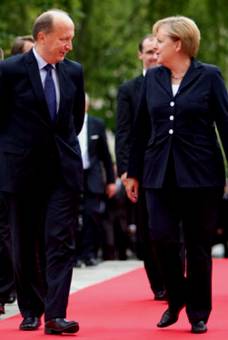
Prime Minister
Andrius Kubilius:
We support Germany's side concerning fiscal discipline
State's economy cannot grow without saving, says Lithuanian Prime Minister Andrius Kubilius, stressing that Lithuania supports the German side which is in favour of fiscal discipline and saving.
Kubilius says that some countries which have failed to save now suggest resorting to even greater spending, thinking that higher spending would spur economic growth, informs LETA/ELTA.
"Growth and saving always go together. One cannot even dream about the economic growth if the state finances are not stable and there is little trust in the state's finances on the global markets. Therefore, in the French-German debates where France says that saving should be put to an end in order to achieve growth and Germany claims that saving plans must not be abandoned, we clearly support the German side, as I have clearly stated it previously," he said in a telephone interview to the radio Ziniu Radijas from Germany, where the PM is for the Baltic Sea States Summit.
In reaction to the new French President Francois Hollande's statements that the economy cannot expand there where only the disciple is found, Lithuanian PM said that the example of Lithuania and other Baltic States shows the opposite: the economy recovers quickly when the state keeps a strict fiscal discipline.
- Bookmark :
- Digg
- del.icio.us
- Stumbleupon
- Redit it
- Posted by - (0) Comment
Need some peace of mind?
Try a boat trip on the
Nemunas and a spa visit
to beautiful Birštonas!
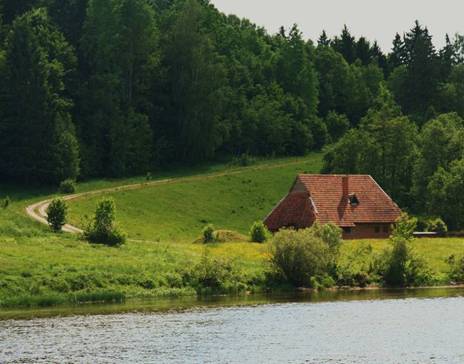
An old house on the Nemunas river bank near Birštonas
Text and photos: Aage Myhre
aage.myhre@VilNews.com
Lithuania’s largest river, the Nemunas, is a slow and peaceful river; with an average speed of only 1 to 2 m/s. Its total length of 937 km makes it the 14th largest river in Europe. 459 km flow in Belarus, 359 km in Lithuania. Well, we called it peaceful, but if you agree to join us for a trip to the small resort town of Birštonas, one hour’s drive from Vilnius, you will soon realise that it’s right here that Nemunas gets a bit crazy, making four large loops without any other reason than this that Birštonas needed some special attention and minerals that over the centuries has made it such an attractive spa resort. Birštonas is suitable for therapy and recreation all year round with its curative peat and mineral water used in treating chronic diseases of peripheral nervous system, gastrointestinal, respiratory and blood circulation systems. The first patients were treated in Birštonas as early as 1840. Enjoy!
Rūta Kapočinskaitė is my Birštonas heroine. She has understood what it takes to represent a tourist destination with energy and genuine attention to the visitor - much more so than representatives of the majority of destinations in this country. So, if you are a Lithuanian working in the tourist trade, don’t miss the chance to learn from Rūta. It takes enthusiasm to promote a destination, and Rūta has got plenty of exactly that. She is simply good!
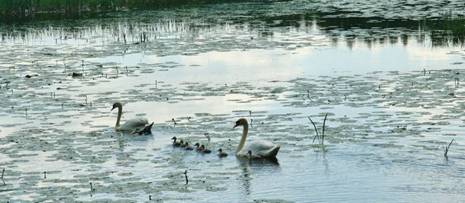
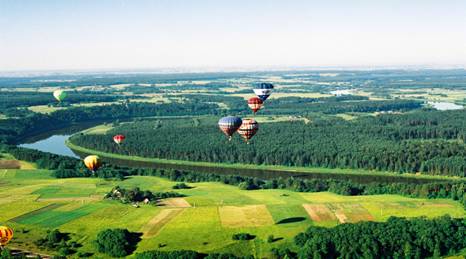
- Bookmark :
- Digg
- del.icio.us
- Stumbleupon
- Redit it
- Posted by - (0) Comment

First ISAF cargo reaches Lithuania from Afghanistan
The first International Security Assistance Force (ISAF) non-military cargo has been safely delivered to Klaipeda State Seaport from Afghanistan, Lithuania's Ministry of Foreign Affairs said.
A total of 76 containers will be further shipped to the United States by sea. This is a result of concentrated and coordinated cooperation between all Lithuanian state institutions and companies in the transport sector, writes LETA/ELTA.
Making use of its unique geopolitical position between the EU and Eastern Neighbourhood countries and intensively cooperating with the U.S. administration, transport and logistics partners, Lithuania has developed new multimodal ISAF cargo transport schemes. The schemes exploit the potential of Lithuanian transport infrastructure and carriers. After the assessment of these circumstances, Lithuania was entrusted with the U.S. ISAF cargo transit via Klaipeda State Seaport.
Lithuania transports the U.S. ISAF cargo from and to Afghanistan via Klaipeda State Seaport and, thus, is part of the Northern Distribution Network, which was established by the United States and the Baltic States as an intermodal route of transportation to ship NATO non-military ISAF cargo to Afghanistan.
The ISAF cargo transportation is useful not only because of the income, but also for the accumulating experience of cargo logistics to Afghanistan. After 2014, when forces of NATO countries will leave Afghanistan, Lithuania will have already established itself in international Asian transit corridors. That will also help other countries to implement their commercial or development cooperation projects in Asia in the future.
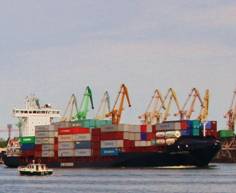
- Bookmark :
- Digg
- del.icio.us
- Stumbleupon
- Redit it
Who would want to come back to a country that strives on discrimination, racism, injustice and corruption?
- Posted by - (0) Comment
![]()

Martynas Karys Lithuania is no longer my home, who would want to come back to a country that strives on discrimination, racism, injustice and corruption? A country that has comedians in power positions ( literarily ) and thugs "acting" police. A country that refuses to allow double citizenship status and demands loyalty while it gives nothing back. Don't get me wrong, I love my country ( Lithuania ) but I do not like the situation that is currently there, if there will be no major changes any time soon, there will be no more Lithuania in a couple of decades.
- Bookmark :
- Digg
- del.icio.us
- Stumbleupon
- Redit it
Come back and fight instead of running away
- Posted by - (0) Comment
![]()

Vincent Degeorge so come back here stand and fight for the beauty of this country instead to run away
- Bookmark :
- Digg
- del.icio.us
- Stumbleupon
- Redit it
My country does not love me…
- Posted by - (0) Comment
![]()

Monika Valkauskaite My country does not love me...it does not respect me nor does it care for human rights...i am very proud to be born in a beautiful country with strong traditions and ancient language...and i will make sure my kids speak Lithuanian...however, i am not proud of what has become of it....immigration is the best that has happened to Lithuanian people since the independence...Martynas Karys is absolutely right! It is scandalous in so many aspects!
- Bookmark :
- Digg
- del.icio.us
- Stumbleupon
- Redit it
Until there is a war or some kind of big conflict i don’t see any change in Lithuania anytime soon
- Posted by - (0) Comment
![]()

Rokas Balbo until there is a war or some kind of big conflict i don't see any change in Lithuania anytime soon because the government like everywhere is corrupt the people hate on each other just to much to list...
- Bookmark :
- Digg
- del.icio.us
- Stumbleupon
- Redit it
The problems in Lithuania are many and complex, but we think it is worth trying to make a difference, if we can, even in one Lithuanian’s life
- Posted by - (0) Comment
![]()

Carol Zupkas My husband's grandparents immigrated to America 100 years ago. In 2009 we moved to Lithuania and it is where we live most of the time now. I think about the story where there were 1000s of star fish on the sea shore. A man walked by a little girl as she picked one up and threw it back into the ocean. He stoped and asked her, "Do you think what you are doing will make a difference?" As she threw another star fish into the water she replied, "To this one it will." The problems in Lithuania are many and complex, but we think it is worth trying to make a difference, if we can, even in one Lithuanian's life.
- Bookmark :
- Digg
- del.icio.us
- Stumbleupon
- Redit it
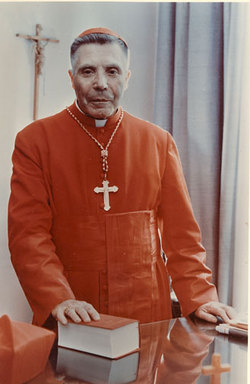
Vincentas Sladkevičius, MIC
(August 20, 1920—May 28, 2000)
Vincentas Sladkevičius, MIC (August 20, 1920—May 28, 2000) was a Lithuanian Cardinal of the Roman Catholic Church. He served as Archbishop of Kaunas from 1989 to 1996, and was elevated to the cardinalate in 1988.
Vincentas Sladkevičius was born in Žasliai, Kaišiadorys, to Mykolas Sladkevičius and his wife Uršule Kavaliauskaite. He was the youngest of five children, his siblings being named Ona, Emilija, Jonas and Marija. After studying at the Kaunas Priest Seminary and Theological Faculty in Kaunas, Sladkevičius was ordained to the priesthood on March 25, 1944. He then did pastoral work in Kaišiadorys until 1959, including serving as a professor and the prefect of studies and discipline at the Kaunas seminary.
On November 14, 1957, Sladkevičius was appointed Auxiliary Bishop sedi datus of Kaišiadorys and Titular Bishop of Abora. He received his episcopal consecration on the following December 25 from Bishop Teofilius Matulionis. However, Bishop Sladkevičius was impeded from performing his ministry by his country's Communist government, and he took up residence at Nemunėlio Radviliškis, where he was under virtual house arrest from 1963 to 1982. He was named Apostolic Administrator ad nutum Sanctae Sedis of Kaišiadorys on July 15, 1982, and became President of the Lithuanian Episcopal Conference on April 27, 1988.
Pope John Paul II created Sladkevičius Cardinal Priest of Spirito Santo alla Ferratella in the consistory of June 28, 1988, and later Archbishop of Kaunas on March 10, 1989. In 1993 the Cardinal entered the Congregation of the Marian Clerics of the Immaculate Conception. He resigned as Kaunas' archbishop on May 4, 1996, after seven years of service. He was awarded the Order of Vytautas the Great in 1998.
V. Sladkevičius died in Kaunas, at age 79. He was buried in the Cathedral-Basilica of Kaunas following a funeral Mass there on June 1, 2000.

An article by KR Slade
- Bookmark :
- Digg
- del.icio.us
- Stumbleupon
- Redit it

Vincentas Sladkevičius, MIC (August 20, 1920—May 28, 2000) was a Lithuanian Cardinal of the Roman Catholic Church. He served as Archbishop of Kaunas from 1989 to 1996, and was elevated to the cardinalate in 1988.
Vincentas Sladkevičius was born in Žasliai, Kaišiadorys, to Mykolas Sladkevičius and his wife Uršule Kavaliauskaite. He was the youngest of five children, his siblings being named Ona, Emilija, Jonas and Marija. After studying at the Kaunas Priest Seminary and Theological Faculty in Kaunas, Sladkevičius was ordained to the priesthood on March 25, 1944. He then did pastoral work in Kaišiadorys until 1959, including serving as a professor and the prefect of studies and discipline at the Kaunas seminary.
On November 14, 1957, Sladkevičius was appointed Auxiliary Bishop sedi datus of Kaišiadorys and Titular Bishop of Abora. He received his episcopal consecration on the following December 25 from Bishop Teofilius Matulionis. However, Bishop Sladkevičius was impeded from performing his ministry by his country's Communist government, and he took up residence at Nemunėlio Radviliškis, where he was under virtual house arrest from 1963 to 1982. He was named Apostolic Administrator ad nutum Sanctae Sedis of Kaišiadorys on July 15, 1982, and became President of the Lithuanian Episcopal Conference on April 27, 1988.
Pope John Paul II created Sladkevičius Cardinal Priest of Spirito Santo alla Ferratella in the consistory of June 28, 1988, and later Archbishop of Kaunas on March 10, 1989. In 1993 the Cardinal entered the Congregation of the Marian Clerics of the Immaculate Conception. He resigned as Kaunas' archbishop on May 4, 1996, after seven years of service. He was awarded the Order of Vytautas the Great in 1998.
V. Sladkevičius died in Kaunas, at age 79. He was buried in the Cathedral-Basilica of Kaunas following a funeral Mass there on June 1, 2000.

An article by KR Slade
. . . . . . . . . . .
August 20, 1920
Vincentas
Sladkevicius, the youngest of five children, is born in the village of Guronys
-- a village in the parish of the small town of Zasliai (in central Lithuania),
which is equidistant from Vilnius and Kaunas, and close to the towns of
Kaisiadorys and today's Electrenai). His parents, and extended family all
living in the same village for 200+ years, are peasant farmers.
. . . . . . . . . . .
March 25, 1944
ordained a
Catholic priest; pastoral work in Kaisiadorys until 1959, including serving at
the Kaunas seminary as a professor and as the prefect of studies and
discipline.
. . . . . . . . . . .
November 14, 1957
appointed Titular
Bishop of Abora, and appointed Auxiliary Bishop 'sedi datus' (i.e., to become
bishop upon the death of the incumbent bishop) of Kaisiadorys; consecrated
December 25, 1957.

. . . . . . . . . . .
1959 to 1976
'Internal exile'
and under virtual house arrest: in the small town of Nemunelio Radviliskis (in
Birzai district municipality, in Panevezys County, northern Lithuania on the
border with Latvia; 2001 census, population 729).
. . . . . . . . . . .
July 15, 1982
appointed (by Pope
John Paul II) Apostolic Administrator of the diocese of Kaisiadorys.

. . . . . . . . . . .
July 15, 1982
named Apostolic
Administrator ad nutum Sanctae Sedis ("at the disposition of the
Holy See" -- refers to any circumstance involving a conflict of
ecclesiastical jurisdiction) of Kaisiadorys.
. . . . . . . . . . .
April 27, 1988
became President
of the Lithuanian Episcopal Conference.
. . . . . . . . . . .
1979
named ['in
pectore' (i.e., 'in the breast', meaning 'heart'; secretly)] a cardinal by
(and known only to) the Pope: to protect him or his congregation from reprisals
if his identity were known.
. . . . . . . . . . .
June 28, 1988
elevated publicly
to the College of Cardinals, when it was made public that in 1979 he had been
secretly named a cardinal





. . . . . . . . . . .
16 February 1989
Cardinal Vincentas
Sladkevicius, for the first time, called for the independence of Lithuania in
his sermon at the Kaunas Cathedral. After the services, 200,000 persons
gathered in the centre of Kaunas to participate in the dedication of a new
monument to freedom to replace the monument that had been torn down by the
Soviet authorities after World War II.
[Note: March 11, 1990 The Act of the Re-Establishment of the State of Lithuania was an independence declaration by the Supreme Soviet (i.e. Legislature) of the Lithuanian Soviet Socialist Republic It was the first time that a Union Republic declared independence from the dissolving Soviet Union.]


. . . . . . . . . . .
March 10, 1989
named Archbishop
of Kaunas on March 10, 1989; he resigned as Kaunas' archbishop on May 4, 1996,
having reached the age of mandatory retirement.
. . . . . . . . . . .
1993
the Cardinal
joined the religious order, the Congregation of the Marian Clerics of the Immaculate
Conception. Henceforth, the initials 'M.I.C.' appear after his name, indicating
that he is a member of such religious order.
. . . . . . . . . . .
1990 until his
death on 28 May 2000
Cardinal Vincentas
Sladkevicius lived in the Kaunas Palace of Bishops (M. Valanciaus g. 6, which
is directly-beside the front of the Kaunas cathedral), where he died.
. . . . . . . . . . .
2000
The
cardinal approved the establishment of the Sacral Art Museum in Birstonas
(Birutes Street 8, Birstonas, LT)
http://www.muziejai.lt/Birstonas/Sacral_Birstonas.en.htm
The Museum, near the parish church of Saint Anthony of Padova, is the former
rectory where then-Bishop Sladkevicius lived during his decades-long 'internal
exile' from his cathedral-seat in the town of Kaisiadorys (LT). The museum
presents two main memorial expositions; one is dedicated to Vincentas
Sladkevicius, who became Lithuania's second cardinal in history; the other is
dedicated to Teofilis Matulionis, the martyred Archbishop.


. . . . . . . . . . .
In the first decade of the 21st century
1) The Kaisiadorys bishop's office, at Kestucio gatve 44 (in Kaisiadorys), has maintained a room, open to the public, and dedicated to the memory of Cardinal Sladkevicius.
2) The diocese of
Kaisiadorys has built the 'Cardinal Sladkevicius Memorial Park' -- a rosary
park, conference centre, and monastery -- in his native village of Guronys,
near the small town of Zasliai.
The Park
is about one/two km from the 'Zasliai train station' (which is actually in
Guronys village, and not in Zasliai); Zasliai train station to the Zasliai
(St. Jurgis) church is 3.6 km; Vilnius-Kaunas highway to Zasliai train station
is 4 km.
From the
Zasliai train station to the Park, the narrow road passes a wooden-cross
monument dedicated to the birthplace of Cardinal Sladkevicius. However, his
actual birthplace (and where he lived until his father died) is one of a group
of three or four houses (on both sides of the road), only a few meters past
this cross-monument.
Some 800
meters further is the Park -- on the exact location of the land of the 200+
years former farmstead of the Sladkevicius family, where the cardinal lived
from when he was about nine years old, after his father died. In addition to
the monastery and conference centre, there is the rosary park: a circle of
five (5) small structures / 'chapels' in a circle. These structures, with ~4 m2
walls, have no doors or windows. In the centre of the circle is a larger
chapel. On the exterior walls of the small chapels, are murals: on the top of
each wall are biblical scenes, and on the bottom are scenes from the history of
Catholicism in Lithuania.


. . . . . . . .
. . .
4 February 2005
I [together with
Fr. J. Farrell Peternal, of Vilnius] visited the Kaunas arch-cathedral, where
in the main chapel (to the right of the altar) he is buried in the floor.

To the left of the front of the arch-cathedral is the 'bishop's palace' where the cardinal lived from when he was archbishop and until his death.

Since his death,
his former residence has become the 'Cardinal Sladkevicius Museum' (of Kaunas) http://kaunas.lcn.lt/03/muziejus/index.html
http://www.muziejai.lt/prev_vers/Kaunas/Sladkeviciaus_muz.htm#Kardinolo
V. Sladkevičiaus muziejus
The museum
exhibition (in 2005) consisted of memorial and literary sections. The memorial
section contains three authentically restored rooms of the Cardinal's
apartment. Restored pieces of memorial furniture are exposed in his
office/study and in his bedroom. In the library, visitors can see restored
bookcases. The large parlour is also furnished with restored memorial
furniture. On the occasion of the Museum’s opening, the Kaunas Archdiocese had
a portrait of the Cardinal made by the painter A. Vaitkunas. The decor and
furnishings were not luxurious.
At the
museum, we met with the director, Irena Petraitiene. She has written two books
about the cardinal. The first book, Kardinolas: Jo Eminencijos Vincento
Sladkeviciaus Laikas ir Asmenybe, was published in 2000, a couple of months
before his death. When he saw the book, he asked her, "Why did you do
that?" Her second book, Padaryk Mane Gerumo Zenklu -- Prisiminimai
apie kardinola Vincenta Sladkeviciu, was published in 2003, in Kaunas by:
Kardinolo V Sladkeviciaus memorialinis butas-muziejus (i.e. the museum).
She
related to us: ". . . (she) arrived here, to write a story about him, the
summer before he died" . . . "(she) was present at the time of his
death" . . . (about his childhood, in poverty) "two months a year,
they ate bread and strawberry jam" . . . "when he was a child, he had
problems with his legs; rickets" . . .
"When
he was in 'internal exile', his mother (i.e. Ursule Sladkeviciene 1885 to 1970)
was living with him; she died, and he found a farmer to transport him and her
body back to their hometown of Zasliai, where she is buried -- directly in
front of and facing the parish church of St. George" . . .
"He
was sick for six to seven years before his death" . . . "prostate
cancer" . . . "he would not take conventional medicines, or medical
treatments" . . . "he took homeopathic medicines" . . . he
said, "I will suffer like Christ on the cross" . . .
"He
died in his bed; the same bed that is in the other room, here" . . .
"the priest giving the last rites, said, 'Lord, open the gates of heaven,
for your servant' . . . " that is when he passed away."
- Bookmark :
- Digg
- del.icio.us
- Stumbleupon
- Redit it
![]()
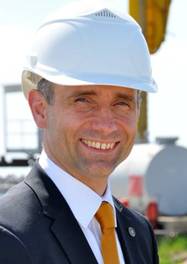
Rokas Masiulis, General Manager
of Klaipedos Nafta
Lithuania’s planned floating liquefied natural-gas terminal on the Baltic sea will have the capacity to supply neighboring Baltic countries.
The floating storage regasification unit could supply neighboring Latvia either via gas pipelines or by shipping the vessel to the country’s port in Riga, Rokas Masiulis, chief executive officer of Lithuania’s oil terminal Klaipedos Nafta AB (KNF1L), said in a press conference in Vilnius today.
The Baltic region is working to diversify its imports from Russia’s OAO Gazprom, its sole supplier. Lithuania agreed to lease a floating gas storage facility from Norway’s Hoegh LNG to begin operations in the Klaipeda port at the end of 2014.
“Technically this terminal in Klaipeda has no barriers to service the whole region,” Masiulis said. “The vessel could be located in Riga in summer and supply Latvia’s underground storage facility and then relocate to Klaipeda in winter.”
The gas pipeline infrastructure connecting Latvia and Lithuania still requires upgrades, he said.
Klaipedos Nafta, which is 70.63 percent owned by the state, plans to borrow 293 million litai ($107.3 million) for investment in the gas terminal from commercial banks or international lenders such as the European Bank of Reconstruction and Development and the Nordic Investment Bank.
Klaipedos is in talks with as many as 9 nine potential gas suppliers for the terminal and plans a tender on gas contracts in the third quarter this year, Masiulis said. Qatar Liquefied Gas Co. and Norway’s Statoil ASA (STL) are among possible suppliers for the terminal.
Estonia is studying its separate LNG solution for the country. Vopak LNG Holding BV, a unit of Royal Vopak NV, is conducting a feasibility study for a terminal at Muuga harbor, near Tallinn. The study is expected to be presented to the Economy Ministry in August.
- Bookmark :
- Digg
- del.icio.us
- Stumbleupon
- Redit it
- Posted by - (21) Comment
Need some peace of mind?
Try a boat trip on the
Nemunas and a spa visit
to beautiful Birštonas!

An old house on the Nemunas river bank near Birštonas
Text and photos: Aage Myhre
aage.myhre@VilNews.com
Lithuania’s largest river, the Nemunas, is a slow and peaceful river; with an average speed of only 1 to 2 m/s. Its total length of 937 km makes it the 14th largest river in Europe. 459 km flow in Belarus, 359 km in Lithuania. Well, we called it peaceful, but if you agree to join us for a trip to the small resort town of Birštonas, one hour’s drive from Vilnius, you will soon realise that it’s right here that Nemunas gets a bit crazy, making four large loops without any other reason than this that Birštonas needed some special attention and minerals that over the centuries has made it such an attractive spa resort. Birštonas is suitable for therapy and recreation all year round with its curative peat and mineral water used in treating chronic diseases of peripheral nervous system, gastrointestinal, respiratory and blood circulation systems. The first patients were treated in Birštonas as early as 1840. Enjoy!
Rūta Kapočinskaitė is my Birštonas heroine. She has understood what it takes to represent a tourist destination with energy and genuine attention to the visitor - much more so than representatives of the majority of destinations in this country. So, if you are a Lithuanian working in the tourist trade, don’t miss the chance to learn from Rūta. It takes enthusiasm to promote a destination, and Rūta has got plenty of exactly that. She is simply good!


Why should people come to Birštonas? This is my first question to Rūta, and her reply is quick and without hesitation; “Because of everything we have to offer. There is simply no better place than Birštonas!”
But let me tell you a bit more about the history of this remarkable place before Ruta start her sightseeing show with us.
As I said above, it is the loops of Nemunas River that has created the very special landscape here. In earlier times, the loops represented great difficulty for ship navigators. Even the rather precise maps of the Grand Duchy (Magni Ducatus Lithuaniae) had not registered the loops correctly, and it was only in 1777 that such registration works were started. In 1852, the Vilnius University professor Abicht finally succeeded in outlining the loops in a proper and correct manner.

The river loops have made the Birštonas landscapes more rolling than the rest of Lithuania. Here you can find rather deep valleys and steep riverside banks of more than 40 metres height. The river itself is on its widest four kilometres.
The other landscape feature I am sure you will recognise as soon as you show up in Birštonas is the fantastic forests which occupy more than half of the municipal area. Beautiful, tall pine trees are the dominant, but also birch-trees and other broad-leaved trees will certainly make your forest walk more than unusual.


It goes without saying that there is an extensive wild life along the Nemunas shores. Birds, animals and fish in different variants and sizes – they’re all here. The biggest fish caught here is said to have been a catfish of close to 60 kgs!

The biggest fish caught here in Nemunas next to Birštonas is said to have been a catfish of close to 60 kgs!
People have been living peacefully in the Birštonas area since ancient times, with its first recordings back to the 4th millennium BC. In the 13th century, however, the crusaders changed this peaceful life, and the people of the present Birštonas lands had to start defending themselves from conquer campaigns. This lead to the construction of mounds, wooden fortresses and defensive castles. The most famous wooden fortress was erected on a mound called Vytautas Hill, and it was next to this fortress that the town of Birstonas started growing up in the 14th century. The name Birštonas was first mentioned in the 1382 chronicles of the Crusaders, as “a homestead next to salty water” (Birstain, Birstan).
After the 1410 Grunwald Battle, the fortresses lost their significance, and the victorious Grand Duke himself (Vytautas the Great) took over the Birstonas Castle as his private hunting mansion. Since that moment, Birštonas became a very much beloved area for hunting, visited by many European Kings and Dukes on the invitation from Grand Duke Vytautas. The forest keeps the name Žvėrinčius (full of wild animals) after these glorious times for both Birštonas and Lithuania.
In 1519 Birštonas was already referenced as a town. It had about 600 inhabitants, and there were four beer-houses and two whisky taverns. A town of hospitality already back then!
I have not been able to find out if the whisky was brought to Birštonas by Scotsmen, but what I have found is that the Hungarians started showing interest for the area already in the 16th century, even being rendered the rights of the city for 40 years. In these times royal stud of horses thrived in Birštonas.
Modern Birštonas, however, has first of all gained its fame after the 19th century detection of healing mineral water from several springs in the area. 1846 is the great year for Birštonas as a spa resort, from then of visitors from many countries have come here for their healing.
“So you see, Birštonas is really the place to visit if you want to heal your body or soothe your soul.” Rūta is back, waking me up from my travel back in time. And from now on, I am again under her attentive control, going for a sightseeing walk around Birštonas – because here the distances are short and no car or bus is needed.

Go for a sanatorium week-end in the “Royal Spa Resort” of Birštonas


“A week-end in Birštonas helps for almost everything”, explains our enthusiastic guide Rūta Kapočinskaitė when she leads us to the place where the town’s first sanatorium was built in 1846, where today’s modern sanatorium “Tulpe” now is located, at the very bank of the Nemunas River. And it’s here you should come to spend a week-end to heal your body and soul.
Birštonas is recently accepted as a member of the very fashionable club “The Royal Spas of Europe” which all have as its common intention to meet the highest quality described in a catalogue of criteria which includes what has to be complied with by the Royal Spas of Europe with respect to their offers for health, wellness and fitness, thermal facilities, medical care, infrastructure, standards of hotels and cultural events.
But we are in Birštonas now, and if you agree to come here for a weekend, the treatments will start already upon your arrival on Friday afternoon, and continue throughout the weekend with all kinds of baths and treatments – in mineral or herbal water, or in healing mud. Massage procedures of all kinds are also important ingredients in the programme.
I have, myself, no clue what they mean, all these terms the experts in the Tulpe Sanatorium use when they try to explain me about their methods and the results thereof, so I have no other choice than to “cheat” a little bit by simply referring to what is written in their brochure:
“A few days in Birštonas are sufficient to regain spiritual equilibrium, serenity, good mood, to get rid of nervousness, general body weariness, and tiredness. The microclimate of Birstonas resort and mineral waters are most suitable for treating illnesses of digestive system, joints, spines, and gynaecological and oenological diseases. The place has a positive effect on the central nervous system, suits the purpose of the genera rehabilitation and, of course, is ideal for having a rest, The personified health programme that is prepared by qualified specialists according to the client’s needs with a menu prepared by dietologists (whatever that is) will ensure you recuperate quickly and regain energy with the best of spirits”.
The Tulpe Sanatorium can also offer a place for you to stay during your visit, in their own little hotel close to the river and with the town and its surrounding forests within a few minutes walk away.
And in addition to this, the Sanatorium offers you to talk with your colleagues in one of their conference rooms, where up to 100 persons can be seated.
“You see,” says Rūta now, “Birštonas has it all.”
Experience a healthy outdoor life in Birštonas

I knew in advance that Birštonas had very much to offer in the summertime, when people here are becoming very active with river-sports in their boats, canoes and kayaks, or on bikes, horseback or foot in the forests and the sport arenas. But I did not know that Birštonas now also has quite a bit to offer during the winter time, especially after the two new ski slopes opened, almost in the very centre of the city.
Rūta grabbed the director of the ski-centre, ……., out of his office asking him to come up and show us the two tracks – the 160 m long blue track and the 300 m long red track – so here we are, seeing that Birstonas has developed their own Alp mood with modern ski lifts, snow canons and other equipment that makes this place a real paradise for skiing enthusiasts.
And, as if that should not be enough, next to the ski tracks a skating ring for kids has been developed.
But, of course, the summer time is soon here, and that’s when Birštonas really shows you what a healthy outdoor life means.


Birštono Seklytėlė - a genuine country tavern on top of a steep river bank

We are in Birštonas and lunchtime is approaching. So, like so many others have been doing before us both during and after the Soviet times, we drive up the hill to the famous tavern (seklytėlė) on top of the Nemunas River bank two kilometres from the town centre.
This is the place where you certainly will get a feeling of being close to the nature either you sit inside or on the view-terrace outside. The restaurant windows and the terrace both overlook the spectacular landscape and the river itself. This is the place for a rich lunch or a nice dinner, relaxed and in the middle of the nature. Overlooking the Nemunas River this genuine tavern is a favourite of locals and foreign visitors alike. It offers a vast array of tasty food and beverages in a cosy setting with original Lithuanian interiors and a fire place that is lit on cold evenings. On most evenings make live music makses this a highly desirable place to while away the hours with friends.

We had a good lunch consisting of local fish from the river and beef from the fields nearby, and our waiter really did his utmost to make us feel at home.
So our conclusion is simple but tasteful; - that the Birštono Seklytėlė is a must to visit for everyone coming to this region.



- Bookmark :
- Digg
- del.icio.us
- Stumbleupon
- Redit it
- Posted by - (3) Comment
Message to all U.S.-Lithuanians:
Come home, your
country needs you!
By Aage Myhre
Editor-in-Chief
aage.myhre@VilNews.com
Our series on US-Lithuanians and their contact with the home country Lithuania has come to an end. Through nearly two months we have brought stories and articles in which the goal has been to shed light on both issues and individual cases, and it shall not be denied that many of the articles have revealed major differences, different mindsets and sometimes bitterness between today's Lithuanians and various emigrant groups in United States. There is still no doubt in my mind that there is much genuine love for the homeland in many diaspora groups, even among the descendants of people who came to America more than 100 years ago when the first major exodus from Lithuania took place.
My thinking is that today’s Lithuanian leaders should do whatever they could to invite and facilitate for as many emigrants as possible to return home, preferably for permanent living but at least for more frequent visits. There should be spared no effort to create more attractive conditions for the return of the fellow-countrymen to Lithuania. The US-Lithuanians’ wisdom, experience, knowledge and investments is still very much needed here.
Thousands of exiles spent half a century in America since WWII, waiting to come home, dreaming of a Lithuania as it was in its pre-communist days. But relatively few did move home despite the newfound freedom for their home country in 1990-1991. The contrast between living in the United States and in a country where the understanding of democracy and
Western-style leadership that still today is quite deficient has probably appeared too dramatic for many. Had liberation
come in the 1960s this would probably have been completely different.
|
|
There have, however, also been good moves to reunite the Lithuanian people in the USA and Lithuania. In 1998 Lithuanians elected a Lithuanian-American President, Valdas Adamkus, who returned to his homeland in 1997 after nearly 50 years in the U.S. Adamkus' post and position was largely symbolic, and he vowed to curb corruption, steer the country westward and restore "moral dignity" to government. As the nation's neighbours, Latvia and Estonia, Lithuania hit the fast track to NATO and E.U. membership, he was calculating that left-behind Lithuania would be ready for forward movement as well-to bury the ghosts from its Nazi and communist occupation, settle old scores and move westward into the 21st century. But the resistance against him was huge. In 1998, a member of the far-left wing put it: "Adamkus won the presidential elections by 14,000 votes. Is that a mandate to import Americans?" |
Despite controversy, Adamkus continued to believe that importing Lithuanian-Americans was good for his country. "You know that when you need experience you can get it," he said. And even some of Adamkus' political rivals agreed. Vytautas Landsbergis, the fiery parliament speaker who led the Sajudis movement that won Lithuania's independence, welcomed the Americans. He said they had brought "a feeling of hope that helped Lithuania overcome the danger of depression.
Suspicion, however, does hang in the air, still today. One of Adamkus' goals was to deal with some of the dark corners of Lithuanian history, bringing to justice those who too eagerly aided foreign occupiers-first the Nazis, then the Soviets. In the late 1990s the Seimas passed a "lustration" law banning former officers of the Soviet KGB from holding jobs in the judiciary, security forces, diplomatic corps, banks and even in some private sector industries. To many Lithuanians Adamkus, was the man to heal his homeland's wounds, but the challenge was huge and the old ‘nomenklatura’ continued to play main roles in a society that desperately needed a total clean up.
|
|
Another interesting move took place when retired U.S. Army Colonel Jonas Kronkaitis became commander of the Lithuanian armed forces. Kronkaitis, who fled Lithuania as a young boy during World War II, served 27 years in the U.S. Army, including two years in Vietnam, and went through Ranger training with Colin Powell. But despite those military qualifications, Kronkaitis, whose reform agenda was focused on getting the tiny army up to NATO level in shortest possible time, did not sit well with some Lithuanians, especially the Soviet-trained members of the elite officer corps and the hard-liners among the reformed communists in the parliament. People like Adamkus and Kronkaitis have done much to establish and improve ties between Lithuanians in the U.S. and in the home country here on the Baltic Sea shore. Also, many others could be mentioned. But there is still very much work to do regarding reconciliation and bridge building. |
We have through this series sought to identify younger US-Lithuanians and other people who have ties and feelings towards their homeland even though they have never lived here. I think we have succeeded relatively well with regard to these efforts, and I hope that our goals of building new bridges with the help of communication has sown some small seeds that may lead to renewed contacts and more mutual understanding.
I hope to see many of our U.S. readers move here to
actively take part in the further development of the tiny but amazing country
called Lithuania! Thank you for following us!
- Bookmark :
- Digg
- del.icio.us
- Stumbleupon
- Redit it
U.S.-Nordic-Baltic cooperation
- Posted by - (0) Comment

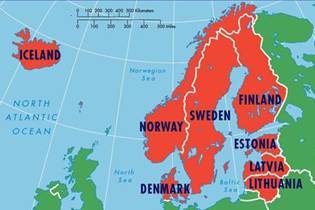
By Dr. Stasys Backaitis
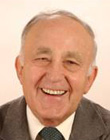 Conference on U.S.-Nordic-Baltic Cooperation:
Conference on U.S.-Nordic-Baltic Cooperation:Shaping the U.S.-European Agenda
The conference provided an overview by U.S. and European researchers and political experts on the importance, need and benefits of a close U.S. collaboration with the Nordic-Baltic region. The collaboration would facilitate building a wider and more secure Europe, reinforcing U.S. attention to transatlantic engagement, and achieving a more constructive dialog with Russia leading to democratization of its society. The conference took place on Friday, May 4, 2012, at The Paul H. Nitze School of Advanced International Studies of the John Hopkins University, Washington, D.C.
- Bookmark :
- Digg
- del.icio.us
- Stumbleupon
- Redit it
VilNews e-magazine is published in Vilnius, Lithuania. Editor-in-Chief: Mr. Aage Myhre. Inquires to the editors: editor@VilNews.com.
Code of Ethics: See Section 2 – about VilNews. VilNews is not responsible for content on external links/web pages.
HOW TO ADVERTISE IN VILNEWS.
All content is copyrighted © 2011. UAB ‘VilNews’.

 Click on the buttons to open and read each of VilNews' 18 sub-sections
Click on the buttons to open and read each of VilNews' 18 sub-sections 


















.jpg)



